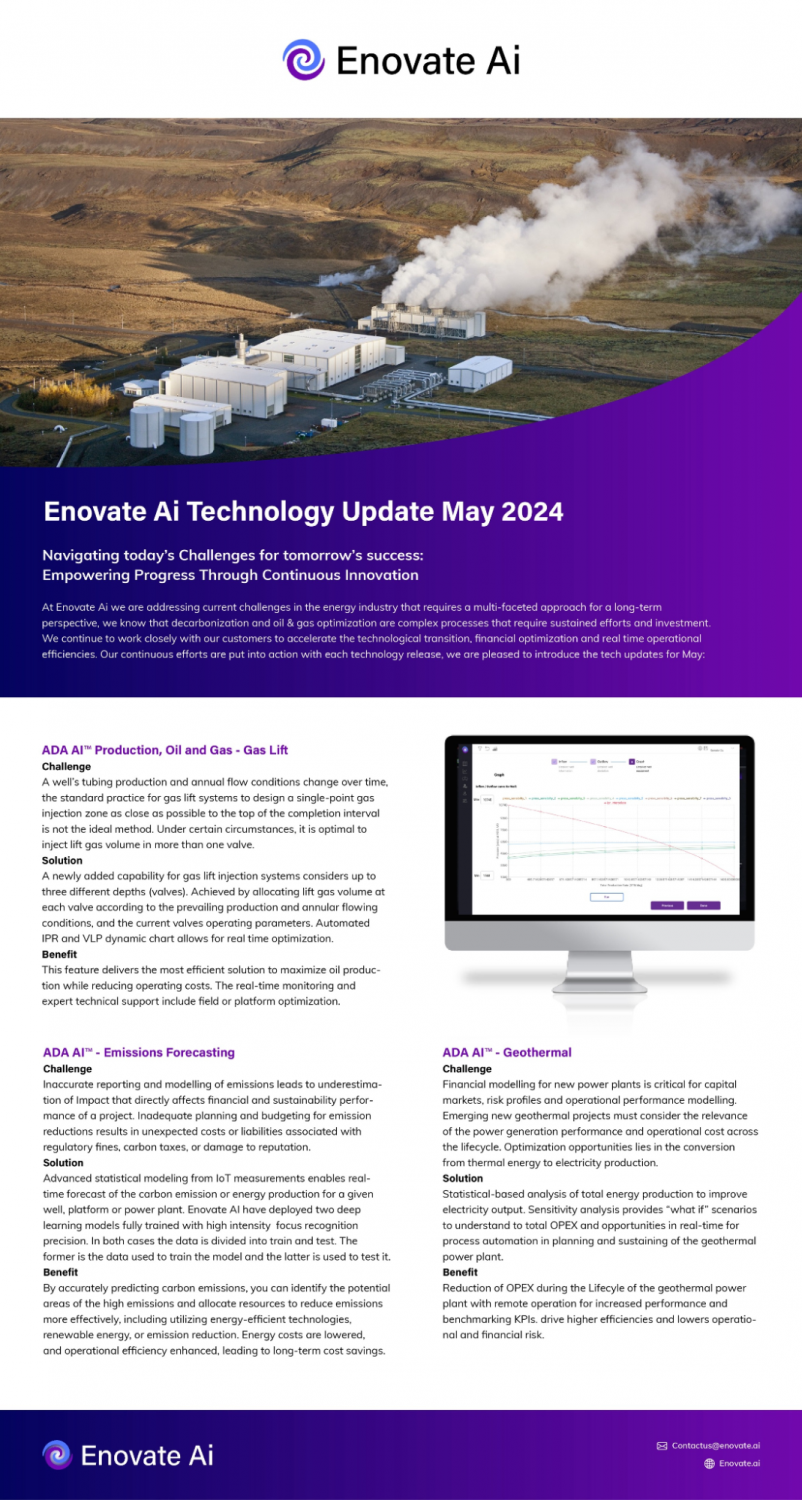The electricity and heating generation industry has been identified as the largest contributor to greenhouse gas emissions, being responsible for 34% globally. As the world scrambles to control emissions and meet the stipulations of successive climate conferences, there is a huge pressure on the energy sector to do its part and reduce emissions of carbon dioxide and other greenhouse gasses and achieve net zero—where emissions are lowered to a point where they can be absorbed and stored by nature and other carbon removal measures, leading to no increase in CO2 in the atmosphere.
For the energy sector to achieve net zero, it’s important to reduce its reliance on fossil fuels, especially coal, which by far is the most polluting. Developing other sources of energy is important, whether they be transition fuels, such as oil and gas, or renewables, such as geothermal, hydrogen, and others.
According to Enovate AI, an international company specializing in business and operational process optimization for the energy industry, technologies such as artificial intelligence, the Internet of Things (IoT), and blockchain hold tremendous potential to aid energy companies in achieving a low-carbon future.
Established by a new generation of oil and gas professionals, Enovate seeks to achieve this by using technology to optimize oil and gas operations by increasing productivity and minimizing cost. Following that, it will help transfer the knowledge gained to the low-carbon industry, which encompasses renewable energy and carbon capture and storage (CCS). It frequently partners with organizations across different industries, fostering strategic technology collaboration to achieve a greater impact on its vision.

“Our mission is a more efficient, cleaner, and more diversified energy industry,” says Enovate AI CEO Camilo Mejia. “We believe oil and gas can play a major role in terms of decarbonization and cleaner energy. You can’t just ‘turn the taps off,’ because it will just create more problems than what it seeks to solve. The oil and gas industry can drive the development of renewable energy via the transfer of knowledge, technology, and infrastructure transfer, drawing from more than a century of accumulated expertise in the oil and gas space.”
Enovate’s flagship energy optimization solution is the ADA AI Platform, which helps enhance the efficiency, reliability, and resilience of energy systems such as oil & gas, geothermal. CCS and hydrogen, contributing to the transition to more sustainable and cleaner energy sources. ADA AI helps create smart grids that use sensors, automation, and real-time data analytics to monitor and manage electricity distribution, integrate renewable energy sources more effectively, reduce the risk of power outages, and ensure a stable energy supply.
The platform contains modules that govern various parts of the energy sector. ADA AI Drilling empowers drilling operations with a simple, intuitive interface to enhance drilling performance while conforming to safe operating standards for both the well and the rig. ADA AI Production allows operators to rapidly and efficiently maximize an asset’s value through advanced physics-informed AI. The data is visualized in a cloud-based platform that provides action-based improvements for engineering optimization.
Enovate’s ADA AI platform contributes to decarbonization efforts by enabling more efficient, sustainable, and data-driven solutions across various sectors. According to Enovate, industrial decarbonization needs to be driven by digital technologies like AI and machine learning to optimize industrial processes, making them more energy efficient. ADA AI New Energies deals with emerging technologies, such as geothermal, hydrogen, and CCS. The IoT and AI capabilities allow it to conduct continuous monitoring, data analysis, optimization, predictive maintenance, and decision support, all of which result in improved overall plant performance in real-time.
“Our offering puts various pieces together to optimize operations via workflow automation. We bring digital technologies to engineering workflows making them more efficient and automated. This allows engineers to focus on value creation as opposed to manual processes,” Mejia says. “There’s a huge need for real-time decision-making tools in the industry, which we have worked with our partners to develop. Optimization means less waste and fewer negative effects on the environment. We believe our impact on society should be meaningful in many ways and we commit to several initiatives to help the energy sector achieve net zero, which is important in ensuring a sustainable world for generations to come.”
* This is a contributed article and this content does not necessarily represent the views of techtimes.com

